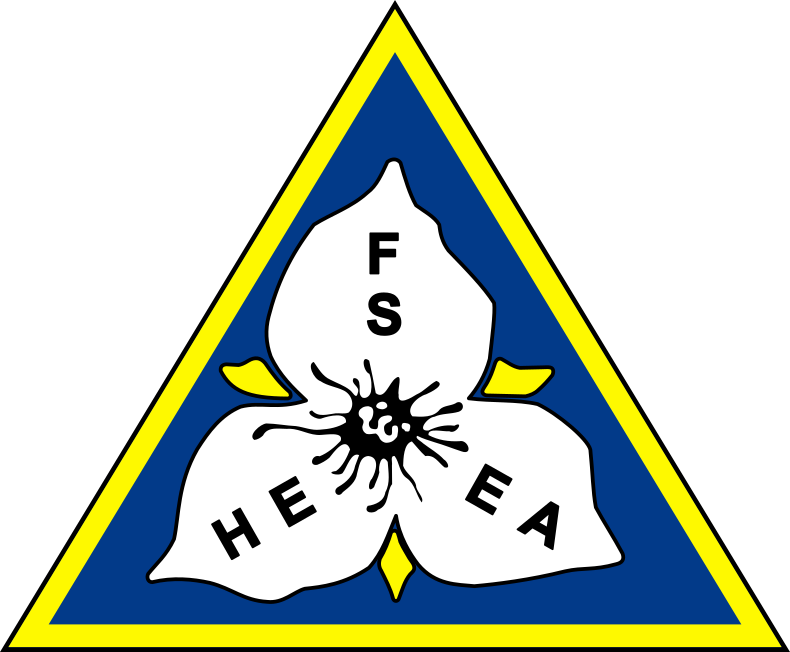In 1903, at the request of the Minister of Education, Mrs. Adelaide Hoodless, Hamilton, called a conference of the Ontario teachers of Domestic Science and Art to be held in Room 10, University of Toronto, April the sixth, (the date being the same as that of the meetings of the Ontario Education Association). The stated object of the conference was “to discuss the advisability of organizing a Section of the Ontario Education Association for the consideration of subjects bearing upon Home Economics and Domestic Art.” As a result of this gathering, a request was forwarded that recognition be given to such a section by the Council of the Ontario Education Association. Of the eighteen teachers attending this conference, nine paid the fee of fifty cents, the amount decided upon for active membership. Mrs. Hoodless was elected president, Miss F. Curzon the vice – president and Miss Grace Roberts the secretary of this, the first session of what was later known as the Home Science Section of the Ontario Education Association.
Two years later the ambitious group invited Miss Bevin, University of Illinois, to address their assemblage, but the expenses incurred left their finances with a deficit of five dollars and sixty one cents. Registration increased in numbers very slowly. Thus, for financial reasons, the .local talent provided the programmes for their annual meetings. Occasionally, speakers of outstanding reputation from Cornell University, Detroit, Guelph or other nearby centres were on the programme. Throughout the years, an attempt was repeatedly made not only to improve teaching methods used in the field, but also to cooperate with the Department of Education in the study of the problems within the curriculum. As research in Home Economics developed, the section also provided a place for report and discussion of pertinent problems.
From 1920, the section became known as the Household Science Section. With the years, the attendance increased and at the same time the types of work in which the members were engaged became more varied: This was the case to such an extent, that the major interests of the larger portion of the group centred in the problems concerned with secondary education rather, than as formerly in the work of the elementary schools. As a consequence, in 1927 the Household Science Section asked the privilege of affiliating with the recently organized Household Science and Arts Subsection of the Technical School Section. This request having been granted, the Household Science Section as a separate section ceased to exist.
In 1938, the name was changed to the Home Economics Section of the O.E.A In 1972, the Family Studies Home Economics Association of Ontario was incorporated and was an affiliate of the O.E.A. In 1977, the name was changed to its present name, Ontario Family Studies Home Economics Educators’ Association. The mission statement of the association was written in 1989 “with the ultimate goal of strengthening the family the role of OFSHEEA is to initiate and facilitate the professional development and personal growth of educators to promote quality family studies programs in Ontario.”
The association holds an annual conference each year in November; the first one was held in 1904. At the annual conference, Regional Awards of Merit are presented to teachers who have been nominated for their excellence in teaching of family studies. The Phyllis Meiklejohn Award recognizes family studies educators for their active leadership and scholarly endeavours combined with their substantial improvement of Family Studies Home Economics Education at, any level. Over the history of the association, a number of print resources have been published such as the OFSHEEA Joumal OFSHEEA Newsletter, and various teaching resources. Regional Workshops are generally held in the spring. OFSHEEA has been involved in supporting other provincial, national and international Home Economics Associations. In conjunction, with the· Canadian Home Economics Association and Canadian International Development Agency, OFSHEEA partnered with the Home Economics Association of Swaziland to develop Family Studies textbooks.
The membership is open to all who maintain an interest in Family Studies Home Economics Education; these individuals will be the driving force who will lead us through the 21 st century.

